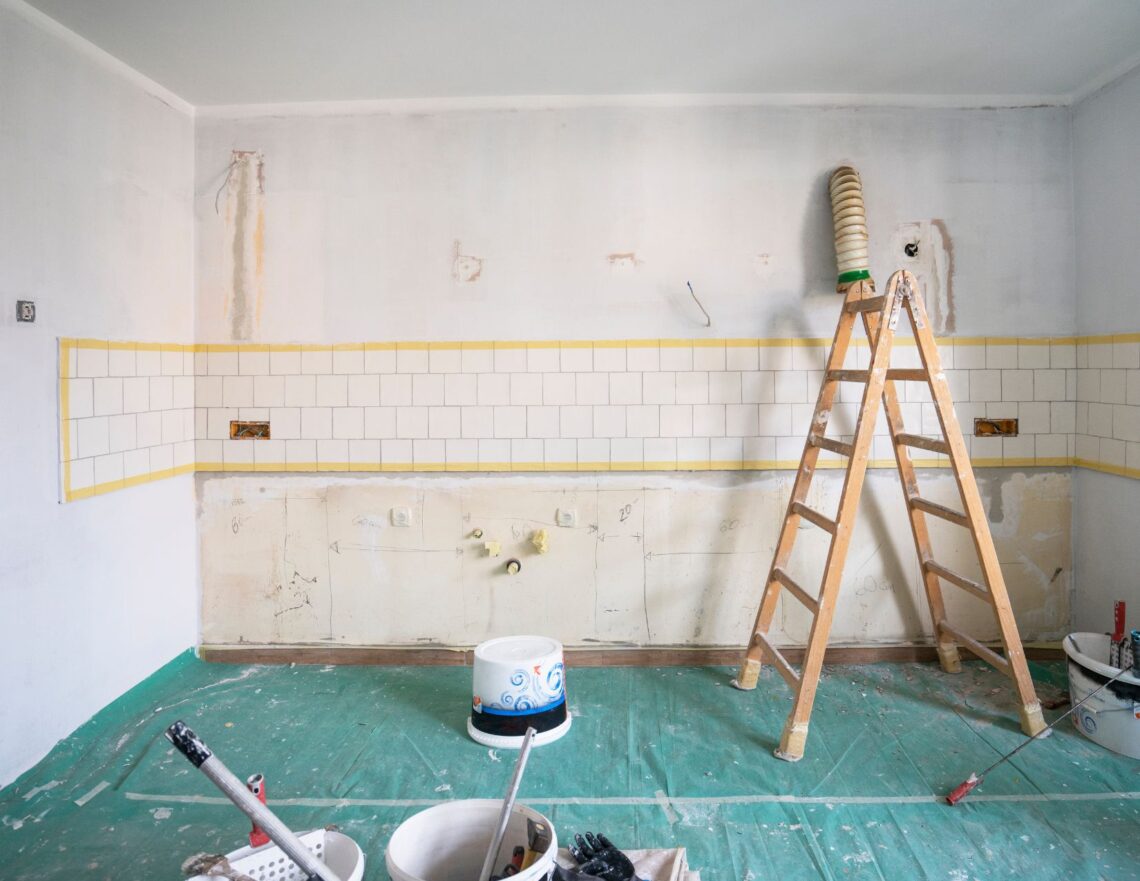01.30.2025 | Selling
Should I Sell My Home As-Is? Pros and Cons You Need to Know

When it comes time to sell your home, a question we often hear is “Should I sell my home as-is?”. This means that the house is sold in its current condition, without any repairs or upgrades made by the seller. While this approach can be attractive due to its simplicity and quick turnaround, it’s important to weigh the advantages and potential disadvantages before deciding if it’s the right move for you. In this post, we’ll explore the pros and cons of selling your home “as-is” to help you make an informed decision.
The Pros of Selling Your House “As-Is”
1. Saves Time and Money
One of the biggest advantages of selling “as-is” is the significant amount of time and money saved. Homeowners often face the costly and time-consuming process of fixing repairs, updating outdated features, or completing renovations to make the property more appealing to buyers. By choosing to sell “as-is,” you bypass all of these expenses and avoid the stress of coordinating repairs, allowing you to move on with your life more quickly.
2. Faster Sale Process
Homes sold “as-is” often attract buyers who are either investors, renovators, or those comfortable with taking on a property that needs work. These buyers are typically more flexible and ready to close the deal faster than traditional homebuyers who might require financing or take their time to make decisions. If you need to sell your home quickly—whether it’s due to a job relocation, financial constraints, or a change in your personal circumstances—selling “as-is” could help you expedite the sale process.
3. No Negotiations Over Repairs
In traditional home sales, buyers often ask for repairs or adjustments to the offer after a home inspection reveals problems. Negotiating over repairs can be tedious, time-consuming, and sometimes contentious. When selling “as-is,” you can eliminate this part of the process, as you are not responsible for fixing anything before or after the sale. This can simplify the transaction and make the process less stressful for both parties.
4. Appealing to Specific Buyers
Some buyers actively look for properties they can renovate or improve, particularly real estate investors or “house flippers.” These buyers are often looking for a deal and are willing to put in the work themselves. By selling your home “as-is,” you’re appealing to this group, which may increase your chances of a quicker sale. Additionally, some first-time buyers may be looking for a budget-friendly option to enter the market, and they may be open to taking on a project.
The Cons of Selling Your House “As-Is”
1. Lower Sale Price
When asking yourself “should I sell my home as-is?”, you need to also ask yourself if you’re ok with potentially having to accept a lower sale price than if you made repairs or updates. Buyers are often looking for a discount when purchasing a property in need of repairs, as they will have to spend additional time and money on renovations. If you want to maximize your sale price and attract a broader range of buyers, investing in minor repairs or improvements before listing might result in a higher return.
2. Smaller Buyer Pool
Not everyone is open to purchasing a property that requires significant work. The majority of buyers, especially first-time homebuyers or families looking for a move-in-ready property, may be put off by a house that requires repairs. This means that you could face a smaller pool of potential buyers, which could lead to longer market time and fewer offers. While some buyers will look for “as-is” properties, others may be hesitant to take on a home that could be riddled with costly or hidden issues.
3. Potential Stigma
Selling a home “as-is” may carry a stigma, especially if your property has major issues that are visible or that a home inspector uncovers. Some buyers may assume that if a seller is unwilling to make repairs, the house must have significant or severe problems. This perception could affect how your property is viewed on the market and make it harder to sell, especially if there are concerns about the structural integrity of the home or the condition of essential systems like plumbing or electrical.
4. Unpredictable Offers
While you might receive offers from buyers who are specifically interested in “as-is” properties, there’s no guarantee that the offers will be what you’re hoping for. Buyers will typically adjust their offers based on the condition of the property, meaning you could end up with offers significantly lower than the asking price. If you’re set on getting a particular amount for your home, selling “as-is” might result in some disappointment or frustration.
Should You Sell “As-Is”?
Should I sell my home as-is? The decision ultimately depends on your individual circumstances and goals. If you’re in a hurry to sell, can’t afford to make repairs, or simply want to avoid the hassle of a lengthy process, selling “as-is” might be the right choice for you. However, if you have the time and resources to make repairs or upgrades, you could potentially sell for a higher price and attract a larger pool of buyers.
Before making any decisions, it’s a good idea to consult with a real estate professional who can help you assess the market value of your home and determine the best strategy for your sale. Whether you decide to sell “as-is” or make some improvements, understanding the pros and cons of each option will help ensure you make the best choice for your situation.
For more expert real estate advice, let’s have a chat to determine if it’s better for you with sell as is or not. We want to ensure that you can get the most out of your home sale, no matter what condition it’s in. If you’re considering selling your home “as-is,” I’d be happy to discuss the process further and help guide you through your options. Contact us today to get started!





